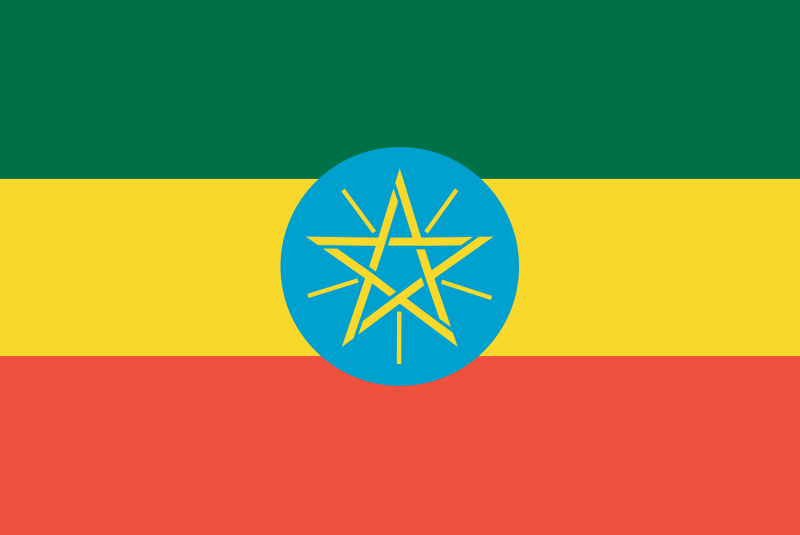


Ethiopia is the oldest independent country in Africa.
In fact, it is one of the oldest countries in the world, and remains the only country in Africa which has never been colonized.
Some historians believe that Ethiopia may well be the beginning of mankind (the fossils of the oldest living mankind or “Lucy” was discovered in north Ethiopia)!
Just looking at a road map of Ethiopia shows that much of this country is inaccessible to tourists, and thus unknown by most of the world. Curious yet? From crater lakes to ancient monasteries, from wildlife to vacation resorts,
Ethiopia is one of the most exotic and fascinating countries where you can study abroad .
Students will be fully immersed in the Ethiopian culture during their home-stay with a local host family.
The Ethiopian people are genuinely friendly and welcoming to visitors, which makes it easier to adapt to living in a completely foreign environment and culture. Requirements of potential students include a high level of maturity and resourcefulness along with an interest in community participation
Geography-Population
study_abroad.capital: Addis Ababa; 2.863 million inhabitants (2009) study_abroad.area: 1,104,300 sq km study_abroad.climate: two seasons: the dry season prevails from October through May; the wet season runs from June to September (tropical monsoon with wide topographic-induced variation) study_abroad.population: 90,873,739 (July 2011 est.) study_abroad.languages:
Amarigna (Amharic) (official) 32.7%, Oromigna (official regional) 31.6%, Tigrigna (official regional
Government-Economy
Government type: federal republic
National holiday: National Day (defeat of MENGISTU regime), 28 May (1991)
Independence Day: oldest independent country in Africa and one of the oldest in the world - at least 2,000 years (may be traced to the Aksumite Kingdom, which coalesced in the first centuries B.C.)
Currency: Ethiopian Birr (ETB); 10ETB = 0.60USD
GDP: $84.02 billion (2010 est.)
GDP - per capita (PPP): $1,000 (2010 est.)
Information for Foreign Students in Ethiopia
Obtaining a Visa
A visa is required to enter the country. Some tourist visas can be issued on arrival at Addis Ababa Bole International Airport for Foreign nationals coming from countries where there is no Ethiopian mission; for Foreign nationals coming from and who are permanent residents in any of the following countries: Australia, Austria, Belgium, Canada, Denmark, Finland, France, Germany, Greece, Ireland, Italy, Luxembourg, The Netherlands, Poland, Portugal, Spain, Sweden, UK and USA.
If applying for a tourist visa on arrival, visitors will require two passport photographs and US$20; application can take up to two hours.
Various visa costs are: Tourist: £14 (single-entry, one month); £22 (multiple-entry, three months); £30 (multiple-entry, six months). Business: £14 (single-entry, one month); £22 (multiple-entry, three months); £36 (multiple-entry, six months); £72 (multiple-entry, one year). Transit: £14 (single-entry); £22 (double-entry).
Housing
Addis Ababa has hotels that cater to all budgets, from the luxurious Sheraton and Hilton hotels to the tourist class hotels. All tourist resorts offer a choice of modern hotels.
Hotels http://www.tourismethiopia.org/pages/reservations.asp
Homes and hotels: http://www.ezega.com/RealEstate/
Health
Prior to entry, visitors should be in possession of a valid health certificate for yellow fever. Vaccination against cholera is also required for any person who has visited or transited a cholera-infected area within six days prior to arrival in Ethiopia.
Health facilities are extremely limited in Addis Ababa and inadequate outside the city. Travellers should bring their own prescription drugs accompanied by a doctor's note. The high altitude and low oxygen level of much of Ethiopia need time to be acclimatized to.
Example of student Insurance offered: http://www.studyabroad.com/pages/sitecontent/marketplace_insurance.aspx
Money
To avoid additional exchange rate charges, travellers are advised to take traveller's cheques in US Dollars or Pounds Sterling. They are difficult to exchange outside the capital.
Transportation
Roads: There are some 4,100 kilometers of asphalt roads with a further 19,000 kilometers of gravel and dry-weather roads. Railway: A 778 kilometers railway line links Addis Ababa with Djibouti, and carries both freight and passengers.
Taxis are available in cities and major towns. These include the blue-and-white mini buses, pickups with a closed Canopy or Saloon Cars. They normally operate on a fixed rate and standard route. Personalized and specific trips should be negotiated with the driver in advance. In the Capital, there are Luxury Mercedes Benz taxis operated by National Tour Operation (NTO). They are stationed outside major hotels and at the airport. They also do not have meters. In addition, there are yellow taxis stationed at the airport for special hire which necessitates a prior negotiation with the driver for the price.
SHARE THIS PAGE!